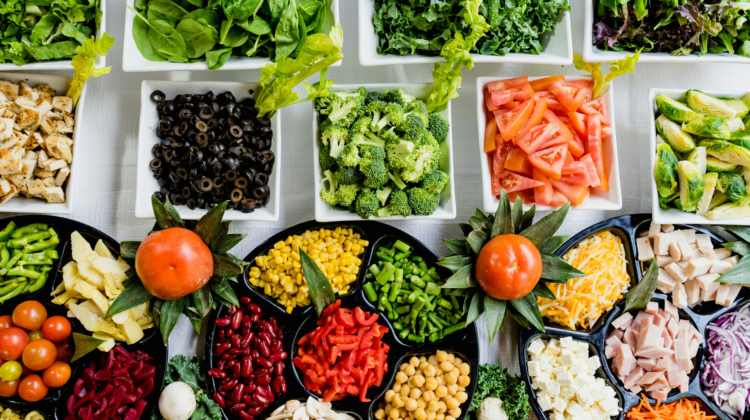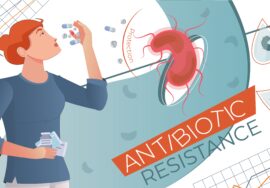
The New Nutrition Evangelists driving the conversation around diet in the UK
Debate and disagreement are central to the scientific process- some would say it’s the fun part. Competing theories and ideas are tested and talked about until there is overwhelming evidence on one side of the argument, consensus is reached, and researchers can move onto the next unknown. There may sometimes be a small minority of scientists that disagree with the prevailing consensus (very occasionally they turn out to be right; more often they are cranks of a flat-earther-type), but scientific agreement can eventually become accepted truth.
People in public policy making recommendations to the public and in in the media and public relations (PR) communicating the findings of science, need to think carefully about whether they are covering an area of debate, consensus or an accepted truth. Cynical populist politicians have taken advantage of missteps in this regard, most memorably, Michael Gove, with his infamous comment: “I think the people of this country have had enough of experts with organisations with acronyms saying that they know what is best and getting it consistently wrong.”
The science around diet and nutrition, and how to translate research into recommendations, has been a particularly difficult area in which to get the communications right, leaving the public understandably sceptical. The heart of the problem is that it is very difficult for scientists to gather incontrovertible (and universally applicable) evidence for the long-terms effects of consuming a particular food or foods, and so reaching an ‘accepted truth’ in this field has been tricky. However, we all need to eat, and whilst the science has been evolving government agencies have done their best to translate this into dietary guidance. Problems have arisen when guidance has been presented as scientific dogma, when in reality it is drawn from an area of on-going debate. In this regard, many contemporary nutrition experts would point the finger at guidelines emerging in the early 1980s around the consumption of fats, in particular of the saturated variety.
In the years leading up to this, there had been a lively debate in the nutrition community about the potentially negative role each of (saturated) fats and (refined) sugars. The most prominent scientists on each side of the debate were Ancel Keyes in the US and John Yudkin in the UK. Keyes argued that a diet rich in saturated fats from red meat and dairy caused high cholesterol which in turn resulted in heart disease, whilst Yudkin pointed the finger at sugar- publishing the 1972 book Pure White and Deadly. Many historians of science now believe that it was Keyes’s more forceful personality and charisma that resulted in dietary advice from the 1980s onwards focusing on the evils of fat (rather than sugar) as opposed to the quality of his observational evidence. The landmark Keyes “Seven Countries” study (on the association between the consumption of saturated fat and heart disease) has been pulled to bits by epidemiologists in subsequent years. Meanwhile obesity levels, and associated diabetes rates, have soared in the developed world as consumers replaced the fat in their diets with refined sugars.
One particularly ‘fashionable’ topic in nutrition science, certainly within the popular media, over the past few years is that of so-called “ultra-processed food”. However, as nutrition researcher Robert Lustig commented in his introduction to the 2012 re-issue of Yudkins’ seminal book on sugar: “science should be based in fact, not fashion. And policy should be based on science. Facts shouldn’t change. And indeed they don’t”.
The term ultra-processed food (UPF) has only been around for around 10-15 years and comes from a food classification system called NOVA originally developed in Brazil. However, in the UK, it is within the last couple of years that the public debate around ultra-processed food has been turbo-charged in part due to prominent TV doctor Dr Chris Van Tulleken, who uses a very broad definition, saying essentially “if it’s wrapped in plastic and has at least one ingredient you wouldn’t find in a home kitchen, it’s a UPF”. And Dr Van Tulleken’s view is it’s all bad and it all should be excluded from our diets immediately. The chosen symbol of the horror of “UPF”, featuring on the front page of his best-selling book “Ultra-Processed People”, is a loaf of brown sliced bread.
Whilst there is certainly some compelling observational evidence of a strong association between excessive consumption of packaged, processed food and poor health outcomes, history should teach us to be cautious of charismatic, well-connected researchers, with a prominent media presence, getting ahead of themselves and prematurely driving health policy in the direction of their own perspective. What’s more, as we have seen, it is incredibly difficult to separate association and cause in nutritional studies.
There are a number of dangers in demonising all food within such a broad categorisation of UPF as Van Tulleken’s. Nobody is going to claim any health benefit from eating sweats, instant noodles, or a pack of pork scratchings, but writing off packaged whole grain bread, low sugar whole grain cereal brands, cooking sauces, tinned beans (no I don’t have modified maize starch in my home kitchen), and so much more, comes with public health risk. Most people are more financially, and therefore temporally, constrained than the affluent experts casually telling us to remove all of these foods from our daily lives. Sure, it would be lovely if our bread was home-baked, our meals all cooked 100% from scratch and we never grabbed a supermarket meal deal on the hoof. But very few people in the modern world can live like that. Casually telling the public at large to immediately stop consuming anything containing one ingredient not found in our home kitchen is unhelpful, potentially unnecessary, likely to add to the anxieties of an already anxious nation and make busy working parents feel even worse about the way they are raising their children. Some people aiming to follow this advice may well end up having less healthy diets, compromising on nutrients they were previously consuming in their breads, cereals or “UPF” baked beans. Let us also not forget the millions of people who depend on prescribed specialist nutritional products to stay healthy or, indeed stay alive. Most of these products are packed full of ingredients which would put them in the UPF category that patients have no option but to rely on.
Notwithstanding the above, we have regulations in place to ensure that the additives in our processed foods are safe. The European Food Safety Authority looks after this (the Food Standards Agency in the UK post-brexit) and the safety of all food additives is evaluated before they can be permitted for use in food. That’s what the E number certifies. This isn’t to say the system we have in place is perfect: perhaps there are some long-term consequences of over-consumption of some foods and ingredients, and things like self-determination of new ingredients as being “generally regarded as safe in the USA is a huge loophole. However, the hardline approach of Van Tulleken and his disciples could potentially undermine trust in our food regulators, but then may that is partly their intention.
Another extremely high-profile doctor, researcher and media personality putting his weight behind the wholesale and indiscriminate demonisation of packaged, processed food is Kings’ College Professor (and author of one of bestselling, and indeed well-informed, books on nutrition of recent years, The Diet Myth) Tim Spector. Interestingly there is little to no mention of “UPF” in 2015’s Diet Myth (can food science really have advanced to consensus quite so quickly?) but last year Prof Spector was heartily agreeing with Chris Van Tulleken, in the hugely popular ZOE health and nutrition podcast, that we should comprehensively avoid “all ingredients you wouldn’t recognize in your kitchen [cupboard]”.
In their conversation, Spector references a US study which it is claimed was a “real game changer” in how we view UPF.
In this 2019 study from Dr Kevin Hall (from the US National Institute for Diabetes and Digestive and Kidney Diseases in Maryland) just 20 patients were confined in a hospital environment for a month and fed a diet of UPF for two weeks, followed by a diet of unprocessed food. Processed versus un-processed meals were carefully matched for calories and nutritional profile, but subjects were free to eat as much as they liked. Result: subjects ate more UPF than un-processed, to the tune of around 500 calories a day, and consequently gained some weight. That’s about it. Yes, an interesting finding, giving pause for thought as to why this might be. But game changing? Or rather just part of the evidence-gathering that informs an on-going scientific debate. In fact, consuming food in such a controlled environment is extremely unrepresentative of the real world. Thinking about my own life: if I make a big homemade lasagne, for example, I am probably more likely to over-eat than if I consume a calorie and nutrient-matched ready-meal-for-one lasagne, where my portion control is regulated. In Hall’s study, participants could presumable have gone back for more “ultra-processed lasagne”!!
But it matters that Hall’s study has been presenting in this way. ZOE is the most listened to and trusted podcast on nutrition (or indeed any subject) out there at the moment and Spector and Van Tellenken two of the most respected and high-profile doctors talking about nutrition in the UK right now.
So whilst Van Tulleken and Spector seem to be correct in highlighting a potential issue around so-called UPF it is, in my view, far too soon to be translating the science into such dogmatic recommendations for the general public. Last year’s UK Scientific Advisory Committee on Nutirition (SACN) statement on processed foods and health concluded that:
“It is unclear to what extent observed associations between (ultra-) processed foods and adverse health outcomes are explained by established relationships between nutritional factors and health outcomes” and that “the observed associations between higher consumption of (ultra-) processed foods and adverse health outcomes are concerning, however, the limitations in the NOVA classification system, the potential for confounding, and the possibility that the observed adverse associations with (ultra-) processed foods are covered by existing UK dietary recommendations, means the evidence to date needs to be treated with caution”.
It is clear to see that the large food companies have a vested interest in down-playing any issues that arise with their multi-million pound brands; but then Dr Van Tulleken has a vested interest not only in selling his book, but in attracting research funding and appearances in a media that likes simple stories.
Eminent scientist Professor Spector has his own vested interests, not least a stake in ZOE, a company he co-founded in 2018 to market £300-a-pop ‘personalised nutritional’ advice. Which brings us to another two fashionable areas of nutritional science: the role of continuous glucose monitors and how diet affects the gut microbiome.
Part of the ZOE ‘programme’ requires customers who sign up to wear a continuous glucose monitor (CGM) which tracks blood sugar levels and sends results to a mobile App for correlation against foods that have been eaten. But making personalised recommendations around the consumption of carbohydrates based on blood glucose responses within the normal range, in non-diabetic individuals feels like yet another instance of jumping the gun before any kind of scientific consensus has been reached. It doesn’t require too much immersion in the scientific literature to realise that this area is controversial. NHS national diabetes advisor Prof Partha Kar was recently quoted by the BBC as saying, “in people without diabetes, “the evidence base is nothing for understanding what the swings in blood sugar mean.”!
ZOE, who with some justification pride themselves on the evidence base behind their approach struck a more nuanced note in a recent blog about the role of CGMs, stating that “this technology is still in its infancy when not used for managing diabetes” and that “we don’t have all of the evidence…but given the risks of poor diet we already understand it would actually be irresponsible to wait decades to understand long-term outcomes”, before making recommendation. Ancel Keyes may well have been saying something similar in the 60s.
ZOE also focuses on the gut flora- good bacteria living in our intestines. This arena has previously been subject to, marketers in particular, getting ahead of themselves in translating embryonic science into nutritional advice. Throughout the 90s and Noughties, companies like Danone and Yakult were happily claiming that probiotic drinks such as Actimel could boost the immune system and reduce gut problems. In 2007, the European Union starting to get much stricter about the claims that consumer food products could make and required companies to submit data to support any health claims they were making. And for probiotics, it turned out that the science just wasn’t there yet, hence the much more modest claims you will now see in advertising for your favourite yoghurt shot.
Research in this area has continued to evolve, and eventually it may well be possible to make definitive and individualised recommendations around foods and bugs. But ZOE’s marketers, once again, seem to be over-reaching. Dr Nicola Guess (academic dietitian and researcher at Department of Primary Care Health Sciences, University of Oxford) recently commented in an online blog:
“There is no evidence that personalising based on the microbiome results in better clinical outcomes. …but even if there were evidence … I still wonder about the value of basing a dietary programme on a single microbiome sample. Why? Because the microbiome is going to change in about a week or two. So if the diet recommend IS based on the microbiome, then surely you need to do another test AGAIN within two weeks?”
Zoe’s (very credible) scientists would no doubt have a comeback for this, but the point is that this is by no means settled science. There is no consensus, let along something regarded as an accepted truth. The problem for the general public, is that, once again, you have very high profile, eloquent, and indeed respected, scientists, putting across their side of a live debate, whether that be around the dangers of processed food or the value of personalising a diet based on metabolic response to carbohydrate consumption in such a way that it can appear to be the consensus view.
Last year the World Health Organization up-dated their guidelines around saturated fatty acid (SFA) and trans-fatty acid (TFA) intake for adults and children. The document begins with the statement:
“Because the role of SFA and TFA in the development of Cardiovascular Diseases (CVDs) continues to be debated…”
In the guidance that follows, a low/moderate/high certainly evidence flag is then included in the text, for example:
“Lowering SFA intake reduces low-density lipoprotein (LDL) cholesterol (high certainty evidence) and CVD risk (moderate certainty evidence), and may be associated with reduced risk of all-cause mortality (i.e.death from any cause) and coronary heart disease (both very low certainty evidence).”
On the one hand we have to get used to more nuance in our dietary guidance; on the other hand it’s possible that we overthink things. Consider the following statements:
- Eat as much varied fresh fruit and veg as possible
- Largely replace red meat with chicken, fish, beans and/or pulses.
- Consume whole grain carbohydrate rather than sugars and refined starches as much as possible
- Oh, and olive oil rules!
Would any credible dieitician today or in the past forty years disagree with recommending any of the above to a large majority of the population? Do many of Zoe’s “personalised” diet recommendations (using ‘big data algorithms’, ‘metabolomics’, ‘shot-gun sequencing’ and ‘continuous blood glucose monitoring’) say anything much different I wonder?




